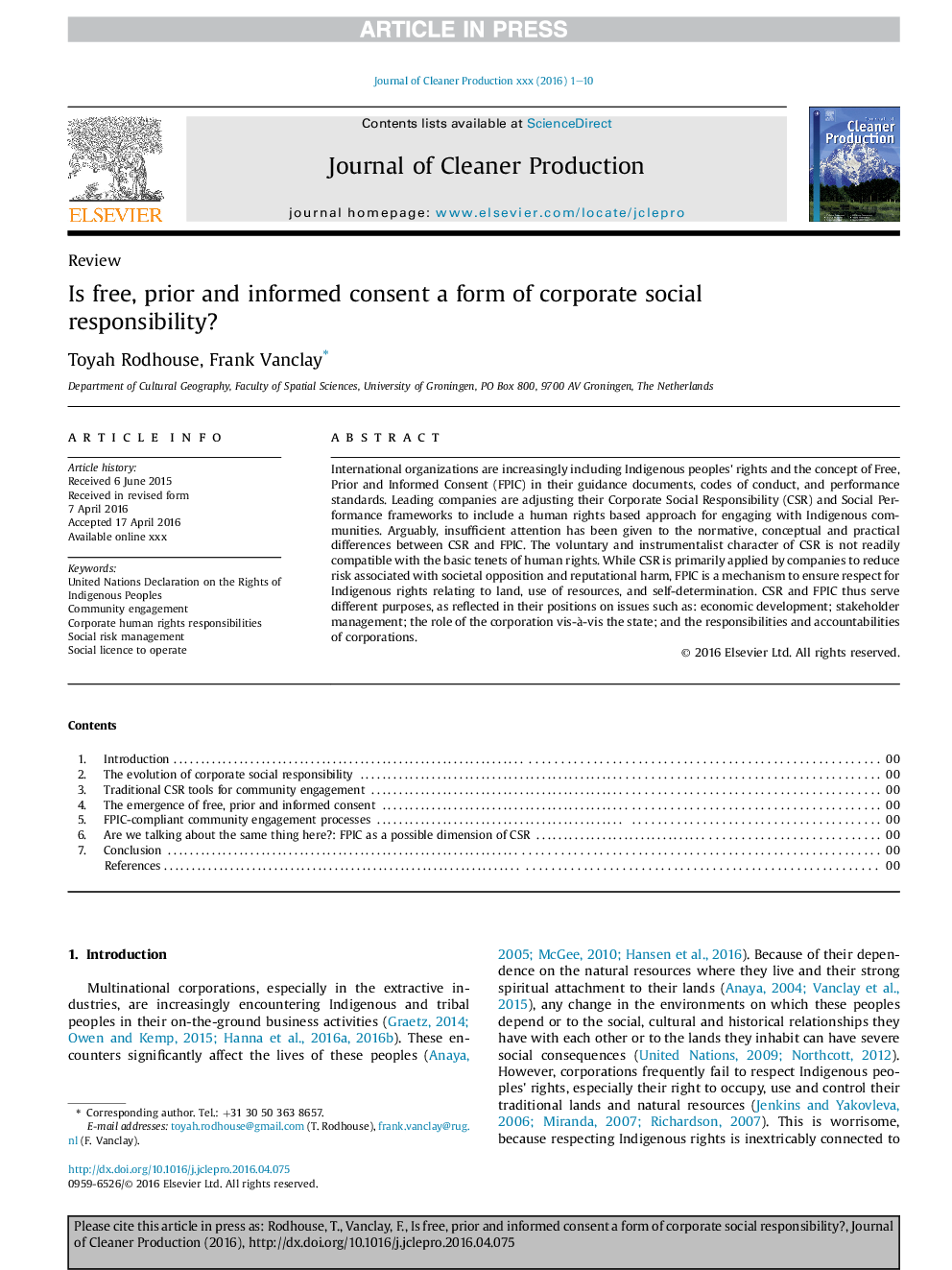| Article ID | Journal | Published Year | Pages | File Type |
|---|---|---|---|---|
| 8101760 | Journal of Cleaner Production | 2016 | 10 Pages |
Abstract
International organizations are increasingly including Indigenous peoples' rights and the concept of Free, Prior and Informed Consent (FPIC) in their guidance documents, codes of conduct, and performance standards. Leading companies are adjusting their Corporate Social Responsibility (CSR) and Social Performance frameworks to include a human rights based approach for engaging with Indigenous communities. Arguably, insufficient attention has been given to the normative, conceptual and practical differences between CSR and FPIC. The voluntary and instrumentalist character of CSR is not readily compatible with the basic tenets of human rights. While CSR is primarily applied by companies to reduce risk associated with societal opposition and reputational harm, FPIC is a mechanism to ensure respect for Indigenous rights relating to land, use of resources, and self-determination. CSR and FPIC thus serve different purposes, as reflected in their positions on issues such as: economic development; stakeholder management; the role of the corporation vis-Ã -vis the state; and the responsibilities and accountabilities of corporations.
Related Topics
Physical Sciences and Engineering
Energy
Renewable Energy, Sustainability and the Environment
Authors
Toyah Rodhouse, Frank Vanclay,
